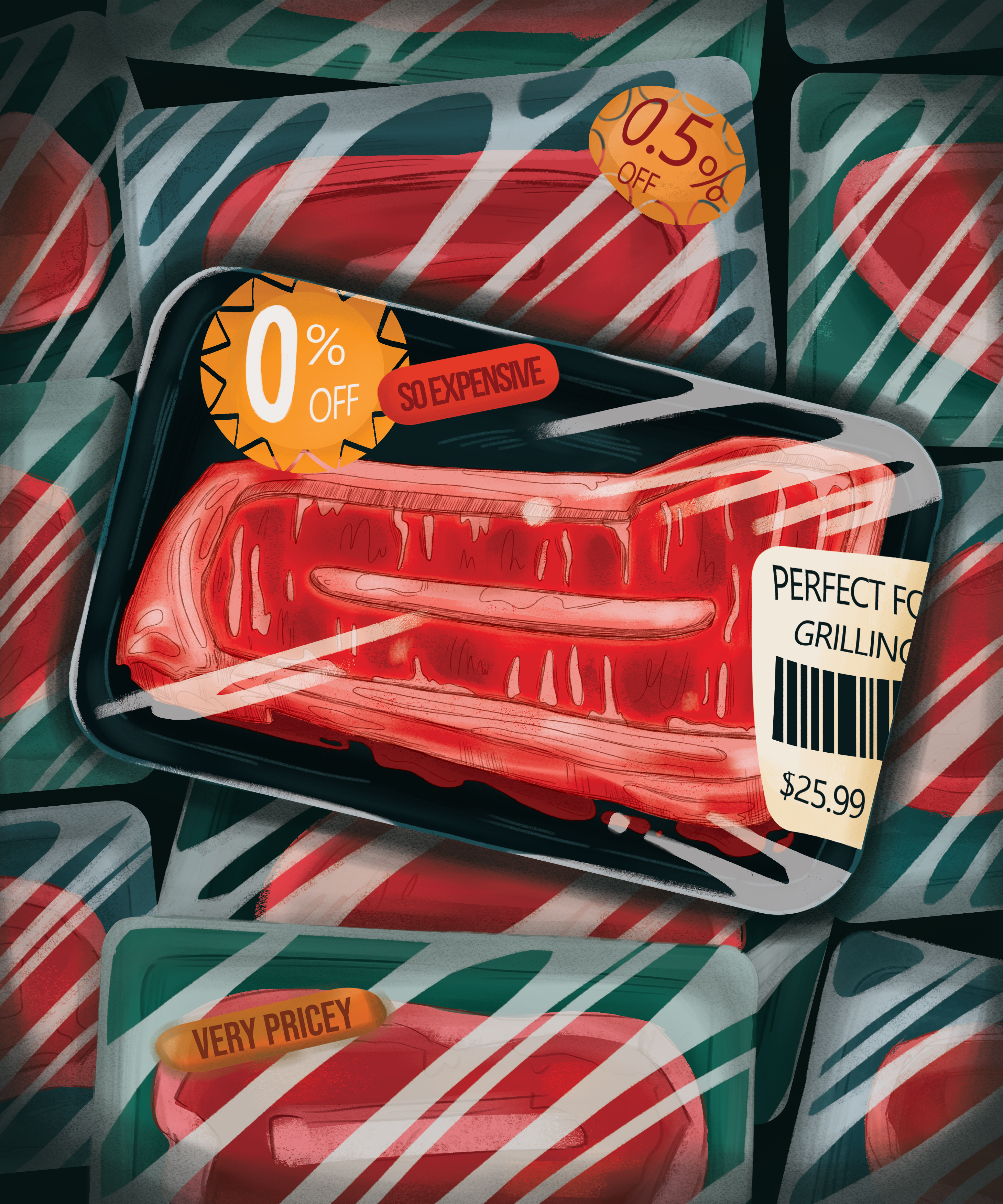The Hive’s most recent steps to reduce the gap between affordable food and accessibility on campus.
On Jan. 13, Provigo announced they’ll no longer be offering 50 percent off for soon-to-expire foods, but rather 30 percent, causing public outrage across the country. Then, on Friday Jan. 19, the big food chain reversed their decision.
Following these two confusing and controversial weeks at Provigo, The Hive is offering all students access to food without any financial barriers through their bi-annual grocery program, which is an expansion of the Hive’s Free Lunch and Breakfast program.
Alanna Silver, the Hive’s Free Lunch program coordinator, is frustrated that big food chains aren’t taking concrete action to better manage their food prices.
“[Big grocers] are making this huge amount of profit while everyone else is really struggling and it shouldn’t be like that in a country that’s as developed as we are,” Silver said.
Sliver started the Hive’s bi-annual grocery program in December 2021 for students who cannot afford groceries at other food chains. The grocery program uses donations from food banks, their community fridge and ‘Enough,’ a waste sorting education company that also tries to reduce food waste. These donations provide canned goods, gluten-free options, fresh produce, halal, kosher and vegan options. This year, Silver expanded the grocery program by providing menstrual products, toothbrushes and toothpaste.
Any student who picks up groceries from the program does not have to pay for what they buy, which is something Silver advocated for when she started the program.
“[Students] should never have to choose between paying tuition, paying for your textbooks, and paying for your meals—that should never have to be a choice,” Silver said.
Sylvain Charlebois, director of the Agri-Food Analytics Lab at Dalhousie University in Halifax, heard rumors about the announcement in December. He contacted Loblaws two weeks ago to confirm the rumor and later published the news on social media. Loblaws’ reason to reduce their discount was to match their competitors. “It was really the earmark of a really major PR crisis for Loblaws. Because you dealt with food affordability, food waste,” Charlebois said.
According to the 2023 Canada Food Price report, the food prices forecast predicted that costs would rise by five to seven per cent. Charlebois confirmed that the housing crisis plays a big role in affordability. He believes that the big grocer wanted to limit how they were using their discounts.
“People are forced to spend more to make sure they keep a roof over their heads, so they have less money to spend at the grocery store,” Charlebois said. “My guess is that Loblaws saw a lot of their demand shift towards these discounted products and they wanted to stop that. They wanted to protect margins as much as possible.”
Sylvain hopes that other large food markets such as Metro, IGA and Sobeys will see Loblaw’s discount charge as an opportunity to revisit their own discount numbers for their consumers.
Matteo Di Giovanni, a second-year film production student, not only noticed the change in prices, but also the quantity of food in the packaging. As someone who’s celiac, Di Giovanni deals with expensive prices already with gluten-free products—now he’s facing the reduction of the quantity he’s getting.
“I’m not surprised,” Di Giovanni said. “It just sucks that I’m paying the same price for less food and I’m already paying a lot for gluten-free, so it’s a bit disappointing.”
Even though his parents do most of the groceries, he still worries about food affordability in the future.
“When I start being more financially independent, it’s going to have a bigger toll on my spending and it’s kind of sucky, everything on top of just regular inflation,” Di Giovanni said.
Di Giovanni recently changed his diet over the break; he started going to the grocery store with his parents to pick out which products will be accessible and better for his diet. As worried as he is about his future with groceries, he’s already asking himself the right questions while he’s at the store.
While big grocery stores are causing anxiety amongst students and other consumers, The Hive is one of the many organizations at Concordia that are providing relief in the university community.
The Hive believes in providing nutritional, healthy, and diverse meals for everyone to perform better in their studies and not worry about their next grocery bill. “Feeding people is our love language,” Silver said.
Silver plans to continue the bi-annual grocery program for many years to come and encourage food education towards students.
